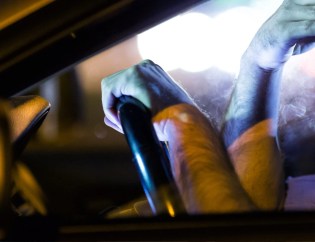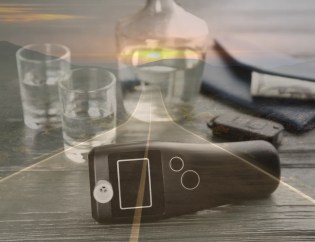
How Do I Beat a DWI Charge in Texas?
Facing a DWI (Driving While Intoxicated) charge in Texas can be an overwhelming experience. The consequences of a conviction - fines, license suspension, a criminal record - can be life-altering. However, being charged doesn’t mean you’ve already lost. With the right strategy and an experienced attorney, it’s possible to mount a strong defense and challenge the charges against you.
Here we explain key approaches to fighting a DWI charge in Texas, common defenses that might apply to your case, and why hiring an expert attorney is essential to safeguarding your future.
Understanding DWI Laws in Texas
Before discussing defense strategies, it’s important to understand the basics of how Texas handles DWI cases. Texas defines driving while intoxicated as operating a motor vehicle in a public place while having a blood alcohol concentration (BAC) of 0.08% or higher or not having the normal use of physical or mental faculties due to alcohol, drugs, or a combination of both.
Texas takes DWI offenses seriously. Even a first-time offense can lead to penalties including:
- Fines up to $2,000
- Jail time ranging from 3 to 180 days
- License suspension, the loss of your driver's license, for up to a year
For repeat offenders or cases involving aggravating factors, such as a high BAC or accidents resulting in injury, the penalties become even more severe.
While these penalties might seem daunting, many options exist to contest a DWI charge - starting with understanding your rights.
Key Defenses to try to Beat a DWI Charge
Each and every case is different, but many common defenses may be used to challenge a DWI charge in Texas. Here are several examples:
1. Improper Traffic Stop
Police officers must have reasonable suspicion to pull you over. For instance, they must observe behavior such as reckless driving or failure to obey traffic laws. If the officer lacked a valid reason for stopping you, your attorney could argue that the stop violated your constitutional rights, leading to the dismissal of the case.
2. Errors in Field Sobriety Tests
Field sobriety tests, like walking a straight line or standing on one leg, are often used to check for signs of impairment. However, these tests are subjective and can be affected by factors unrelated to intoxication, such as poor lighting, uneven surfaces, or medical conditions. Questioning the accuracy of these tests is often a key part of building a defense.
3. Challenging Breath or Blood Test Results
Breathalyzers and blood tests are not always foolproof. These methods can give inaccurate results due to improper calibration, operator error, or medical conditions such as acid reflux or diabetes. An experienced DWI attorney can investigate whether the procedures were followed correctly and challenge unreliable results in court.
4. Illegal Arrest
Even if law enforcement conducts a proper stop, they must have probable cause to arrest you. For example, smelling alcohol on your breath isn’t enough to establish probable cause without additional evidence. Any failure to follow proper protocols could work in your favor.
5. Violation of Your Rights
If law enforcement violates your constitutional rights during the stop or arrest - such as conducting an unlawful search - the evidence obtained as a result may be inadmissible in court. This can significantly weaken the prosecution’s case.
6. Rising Blood Alcohol Defense
Your BAC doesn’t instantly rise the moment you drink. It takes time for alcohol to absorb into your bloodstream. If a breath or blood test was conducted sometime after you were behind the wheel, it’s possible your BAC was below the legal limit while you were actually driving, but rose above it by the time you were tested.
The Importance of an Expert DWI Attorney
Trying to beat a DWI charge on your own is a risky proposition. Texas DWI laws are complex, and prosecutors will have extensive experience trying these cases. Hiring the right attorney can make all the difference. Here’s how an expert DWI lawyer, like Jacob Blizzard, can help:
1. Case Investigation: An attorney knows how to scrutinize the events leading up to your arrest, including reviewing police reports, video footage, and witness statements for errors or inconsistencies.
2. Legal Strategy: A skilled lawyer will identify the defense strategies most likely to work in your case, whether it’s challenging evidence or negotiating a plea bargain.
3. Courtroom Advocacy: If your case goes to trial, having a lawyer who understands courtroom procedures and knows how to counter prosecution tactics is invaluable.
What to Do If You’re Facing a DWI Charge
If you’ve been charged with a DWI in Texas, the steps you take immediately after your arrest can impact the outcome of your case and efforts to beat a DWI. Keep these tips in mind:
- Exercise Your Right to Remain Silent: Politely refuse to answer questions about your alcohol or drug use without an attorney present.
- Request Legal Counsel: Contact an attorney as soon as possible to begin building your defense.
- Keep Documentation: Make sure you write down notes about the incident while your memory is fresh, including why you were pulled over and all interactions with law enforcement officers.
Above all, don’t delay seeking guidance. Texas law provides only a limited time to request an Administrative License Revocation.
A DWI arrest does not have to result in a conviction. DWI Specialist attorney Jacob Blizzard is committed to providing an aggressive and effective defense for clients facing DWI charges.
Don't wait to protect your rights. Contact our office today for a case consultation.











